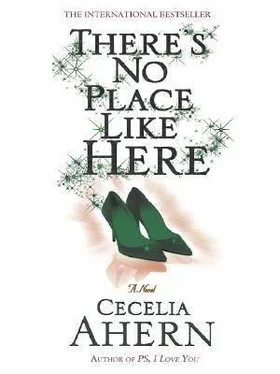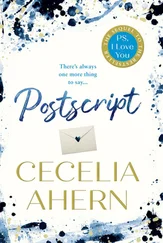“They are the basics of good leadership.”
“Well, does this pamphlet for how to elect a leader work?” I smirked.
“I should think so.” She made her way over to Joan, who was on the far side of the room. “Seeing as Joseph is on the council.”
My mouth dropped as I watched her cross the room. “Joseph?”
“You seem surprised.”
“Yes, well, I am surprised. He seems so…” I searched for the correct way to explain without offending her. “He’s a carpenter,” I eventually settled on.
“Those on the council are ordinary people with their own day jobs. He’s merely called on to voice decisions when decisions need voicing.”
I couldn’t stop smiling. “I just get the feeling that everybody here is playing ‘House,’ you know? It’s hard to take seriously.” I laughed. “Come on, I mean we’re in the middle of nowhere and you have councils and courthouses and who knows what else?”
“You think it’s funny?”
“Yes!” I smiled. “Everywhere I look everyone’s playing dress-up in other people’s clothes. How can this place, wherever this place is , have any kind of order or rules at all? It exists completely without logic; it lacks all sense of practicality.”
Helena seemed offended at first but then became sympathetic, which I hated. “This is life, Sandy, real life . Sooner or later you’ll discover that nobody’s playing any games here. We’re all just getting on with life and doing what we can to make it as normal as possible, just like everybody else, in every other country, in every other world.” She approached Joan. “How did you get on with Sandy’s list?” she asked, ending our conversation.
Joan looked up in surprise. “Oh, hello, I didn’t hear you both coming. You look”-she gave my eighties outfit the once-over-“different.”
“Did you get in touch with everyone on the list?” I asked, ignoring her disapproving gaze.
“No, not all of them,” she said, glancing down at her page.
“Let me see.” I grabbed her notepad, my body surged with a sudden rush of adrenalin. My eyes scanned through the list of thirty names I had provided her with: fewer than half of them had ticks beside them. Joan continued talking as I read through the names so quickly I was barely able to take them in. My heart beat wildly and skipped a beat each time my eyes registered a name and I realized that person was alive and well and that soon we would be meeting.
“As I was saying,” Joan spoke, angry I had jumped ahead of her story, “Terence at the registry was no help because he couldn’t give out any information unless someone from the council requested it for official reasons.” She eyed Helena warily. “So I had to just ask around the village, but you’ll be pleased to know, Sandy, the Irish community here is so small that everyone knows everyone anyway.”
“Go on,” Helena urged.
“Well, I got in contact with quite a lot of people, twelve in total,” she continued. “Eight are interested in auditioning, the other four said they’d take part in the production in some way but definitely not on stage. But I didn’t get the likes of, let me see…” She put her glasses on and lifted the page.
“Jenny-May Butler.” I finished the sentence for her, my heart plunging into the depths of my stomach.
Helena looked at me, obviously recognizing the name from the time of my collapse.
“Bobby Stanley,” I read another name, my hopes dashed. I continued, “James Moore, Clare Steenson…” The list of untraceable people went on.
“Well, just because they’re not here doesn’t mean they’re not in the next village,” Joan tried reassuring me.
“What are the chances of that?” I asked, feeling hopeful again.
“I won’t lie to you, Sandy. The majority of the Irish community are in this village,” Helena explained. “Five to fifteen people, at most, arrive each year, and because there are so few of us we tend to stick together.”
“So Jenny-May Butler must be here,” I said forcefully. “She has to be here.”
“What about the others on the list?” Joan said in a quiet voice.
I scanned it quickly, Clare and Peter, Stephanie and Simon…I had sat with their relatives long into the night, thumbed through photo albums, and wiped tears through promises of finding their children, brothers, sisters, and friends. If they weren’t here then it meant I could only suspect the worst.
“But Jenny-May.” I started digging into the facts of the case I’d stored in my brain. “There was no one else. Nobody saw anything or anybody.”
Joan looked confused; Helena sad.
“She has to be here. There was nothing sinister at all about her disappearance,” I rambled on to myself. “Unless she’s hiding, or else she’s in another country; I didn’t look into other countries.”
“OK, Sandy, why don’t you just take a seat now? I think you’re burning up,” Helena interrupted.
“I’m not burning up.” I swatted her hand away. “No, she’s not hiding and she can’t be in another country. She’s my age now.” I looked to Joan and everything was clear. “You have to find Jenny-May Butler, tell everyone that she’s my age. She’s thirty-four years old. She’s been here since she was ten, I know it.”
Joan nodded her head quickly, almost afraid to say no. Helena held out her hands toward me, afraid to touch me yet afraid to move away. I noticed the faces of the two women as they watched me. Worried. I quickly sat down and drank from a glass of water Helena had thrust into my hands.
“Is she OK?” I heard Joan ask Helena as they moved away.
“She’s fine,” Helena said calmly. “She just really wanted Jenny-May for the play. Let’s do our best to find her, shall we?”
“I don’t think she’s here,” Joan whispered.
“Let’s look anyway.”
“Can I ask why I was given a list of thirty to find? How does Sandy know they can act? When I contacted them all, they were very surprised. Most of them have never been involved in amateur dramatics. What about all the others who are interested in taking part? They’re still allowed to audition, aren’t they?”
“Of course, everyone’s allowed.” Helena pawned her off. “The people on the list were just special, that’s all.”
Of the two thousand people reported missing in Ireland every year, between five and fifteen will never be found. The thirty people I had chosen were the ones I had spent my entire working life obsessed with finding. Others I had found, others I could give up looking for, knowing something sinister was involved, that harm had sadly come to them or that they’d merely walked away of their own accord. But these thirty on the list, they were the ones who had disappeared without a trace and without reason. These were the thirty who haunted me, the thirty without a crime scene to examine or witnesses to question.
I thought of all their relatives and of how I’d promised I’d find their loved ones. I thought of Jack Ruttle, of how only last week I had made that promise. I thought of how I had failed to show up at our meeting in Glin and how now I had once again failed.
Because according to the list, Donal Ruttle wasn’t here.
On Tuesday morning, exactly two days since Sandy’s no-show, Jack, who had not long returned home with Sandy’s file on Donal, stepped out into the fresh July morning air and closed the door to the cottage quietly behind him. Around the town, preparations were being made for the pending Irish Coffee Festival; banners were rolled up beside telegraph poles ready to be hung and the back of a truck had been opened up as a makeshift stage for the outdoor trad-band performances. The town was quiet now, though, everybody still in the comfort of their beds, dreaming of other worlds. Jack started his engine, the noise of it loud enough in the quiet square to wake the entire town, and he made his way into Limerick city where, hopefully, he would meet Sandy at Donal’s friend Alan’s home. He also wanted to pay a visit to his sister Judith.
Читать дальше












